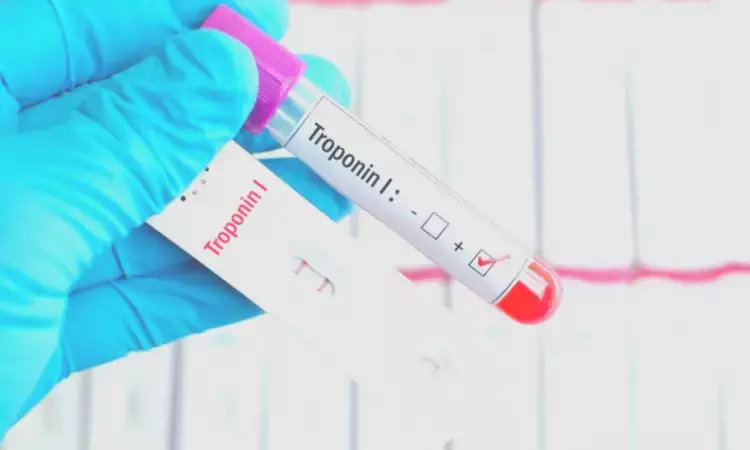- Home
- Medical news & Guidelines
- Anesthesiology
- Cardiology and CTVS
- Critical Care
- Dentistry
- Dermatology
- Diabetes and Endocrinology
- ENT
- Gastroenterology
- Medicine
- Nephrology
- Neurology
- Obstretics-Gynaecology
- Oncology
- Ophthalmology
- Orthopaedics
- Pediatrics-Neonatology
- Psychiatry
- Pulmonology
- Radiology
- Surgery
- Urology
- Laboratory Medicine
- Diet
- Nursing
- Paramedical
- Physiotherapy
- Health news
- Fact Check
- Bone Health Fact Check
- Brain Health Fact Check
- Cancer Related Fact Check
- Child Care Fact Check
- Dental and oral health fact check
- Diabetes and metabolic health fact check
- Diet and Nutrition Fact Check
- Eye and ENT Care Fact Check
- Fitness fact check
- Gut health fact check
- Heart health fact check
- Kidney health fact check
- Medical education fact check
- Men's health fact check
- Respiratory fact check
- Skin and hair care fact check
- Vaccine and Immunization fact check
- Women's health fact check
- AYUSH
- State News
- Andaman and Nicobar Islands
- Andhra Pradesh
- Arunachal Pradesh
- Assam
- Bihar
- Chandigarh
- Chattisgarh
- Dadra and Nagar Haveli
- Daman and Diu
- Delhi
- Goa
- Gujarat
- Haryana
- Himachal Pradesh
- Jammu & Kashmir
- Jharkhand
- Karnataka
- Kerala
- Ladakh
- Lakshadweep
- Madhya Pradesh
- Maharashtra
- Manipur
- Meghalaya
- Mizoram
- Nagaland
- Odisha
- Puducherry
- Punjab
- Rajasthan
- Sikkim
- Tamil Nadu
- Telangana
- Tripura
- Uttar Pradesh
- Uttrakhand
- West Bengal
- Medical Education
- Industry
High-sensitivity cardiac troponin test may overestimate risk in pulmonary embolism: JAMA

Spain: Replacing cardiac troponin I (cTnI) with high-sensitivity-cTnI (hs-cTnI) may lead to an increase in the number of patients with positive troponin results but is not likely to improve the prediction of complicated course, a recent study published in JAMA Cardiology has shown.
In the cohort study of 834 patients with hemodynamically stable pulmonary embolism (PE), hs-cTnI, compared with cTnI, more frequently detected elevated values, but did not predict the 30-day risk of a complicated course.
Novel data from an exploratory analysis of the PROTECT study suggests that thresholds of hs-cTnI for acute myocardial infarction diagnosis may not be applicable to patients with PE. The results indicate lower specificity of hs-cTnI than cTnI in identifying patients with PE at risk of a complicated course.
High-sensitivity troponin tests can detect even milder cardiac troponin increases in plasma, beyond the threshold of conventional troponin tests. However, there is no clarity on whether detecting low-grade cardiac troponin elevation is tied to outcomes of patients with hemodynamically stable PE and helps with risk stratification.
To clarify the same, Behnood Bikdeli, Harvard Medical School, Boston, Massachusetts, and colleagues aimed to determine the association between hs-cTnI compared with conventional cTnI and PE risk designations according to the European Society of Cardiology (ESC) 2019 classification scheme and clinical outcomes in patients with hemodynamically stable pulmonary embolism.
For this purpose, the researchers performed a post hoc analysis of data from the PROTECT cohort study enrolling patients from 12 hospital emergency departments in Spain. In the analysis, they compared cTnI and hs-cTnI concerning ESC risk designation and the association between troponin values and a complicated course after PE diagnosis was evaluated.
In the analysis, 98.3% had hsTnI and cTnI values available and were included from 848 patients enrolled in PROTECT. Outcomes included a complicated course, defined as hemodynamic collapse, recurrent PE, or all-cause death, within 30 days after PE.
The study led to the following findings:
- Of 834 patients (mean age, 67.5 years; 50.8% female), 16.7% had elevated cTnI and 31.7% elevated hs-TnI, respectively.
- During follow-up, 62 patients had a complicated course.
- Analyzing troponin elevation as a binary variable, elevated cTnI (odds ratio [OR], 2.84) but not hs-cTnI (OR, 1.12) was associated with increased odds of a complicated course.
- Of 125 patients who had elevated hs-cTnI but normal cTnI, none developed a complicated course.
- Using the 2019 ESC risk stratification scheme, hs-TnI classified fewer patients as low risk compared with cTnI.
- Among 78 patients designated as ESC low risk when using cTnI but not with hsTnI, none (0) had a complicated course.
In the study of patients with hemodynamically stable PE, hs-cTnI identified modest increases in cardiac troponin levels. However, the results failed to provide additive clinical value compared with cTnI.
"These findings suggest that hs-cTnI use may result in overestimation of the risk in patients with stable PE," the researchers wrote.
"Future studies should investigate whether using high-sensitivity troponin assays, rather than sensitive assays, results in excess in the use of advanced therapies in routine practice," they concluded.
Reference:
Bikdeli B, Muriel A, Rodríguez C, et al. High-Sensitivity vs Conventional Troponin Cutoffs for Risk Stratification in Patients With Acute Pulmonary Embolism. JAMA Cardiol. Published online November 22, 2023. doi:10.1001/jamacardio.2023.4356
Dr Kamal Kant Kohli-MBBS, DTCD- a chest specialist with more than 30 years of practice and a flair for writing clinical articles, Dr Kamal Kant Kohli joined Medical Dialogues as a Chief Editor of Medical News. Besides writing articles, as an editor, he proofreads and verifies all the medical content published on Medical Dialogues including those coming from journals, studies,medical conferences,guidelines etc. Email: drkohli@medicaldialogues.in. Contact no. 011-43720751


